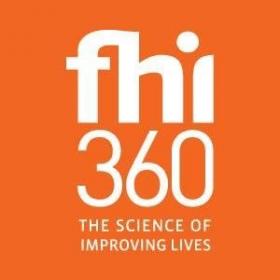The Clinical Trial Associate (CTA) assists both the project management and clinical operations teams in the implementation of clinical trials. Responsible for the collection, review, tracking, maintenance and archiving of essential study documents in the Trial Master File (TMF), ensuring that project-specific administrative documents (e.g., contact lists, etc.) are maintained, and ensures sites are supplied with all required materials and supplies. Frequent contact with internal and investigator site personnel. May be responsible for managing individual, large, or complex studies / programs. Assists the clinical research teams in ensuring the most effective and efficient conduct of clinical research studies by providing administration and project tracking support. Key role in supporting project team needs.
- Supports clinical teams by performing tasks related to study management from start up to study completion.
- Provides administrative support to the project team.
- Assists the clinical project management team with written and verbal communications with study staff and sites.
- Assists the clinical project management team with the creation of study-specific documents and materials, and with the acquisition of study supplies.
- Utilizes technology effectively to support clinical development processes; develops mastery of relevant systems (e.g. study management tools) and identifies new innovative ideas and shares best practices.
- Provides study materials and supplies to the study sites and Clinical Research Associate (CRAs).
- Prepares and issues meeting minutes, including action items, under the direction of project management.
- Maintains the study-specific TMF and associated electronic archives.
- Assists the clinical project management team with the organization of meetings.
- Support the clinical operations teams with ongoing conduct of studies.
- Assists in the close-out of projects by performing a final Quality Control (QC) of the TMF, identifying items and issues for review and/or follow-up by the CRAs and/or project management.
- Assist in the production of slides, overheads, etc. as needed for department, project, and sponsor and or business development.
- Performs other duties as assigned.
- Needs a basic understanding of the conduct of clinical trials, related systems, and procedures, and guidance and regulations.
- Ability to write clearly and succinctly; must be able to accurately record meeting minutes and action items.
- Must have excellent interpersonal and communication skills and demonstrate the ability to work successfully in a team environment.
- Ability to prioritize and manage multiple tasks.
- Familiar with applicable clinical research regulatory requirements; i.e., Good Clinical Practice (GCP) and International Conference on Harmonization (ICH) guidelines
- Proficiency in Microsoft Office, spreadsheet software and other technology required.
- Articulate, professional and able to communicate in a clear, positive fashion with clients and staff.
- Demonstrated effective organizational skills.
- Demonstrated strong attention to detail.
- Must be able to read, write and speak fluent English.
Problem Solving & Impact:
- Works on problems of limited scope that require a review of various factors.
- Exercises judgment within defined procedures and practices to determine appropriate action.
- Decisions generally affect own job or specific functional area.
Supervision Given/Received:
- Receives general instructions on routine work, detailed instructions on new projects or assignments.
- Does not have direct supervision responsibilities.
- Typically reports to a Manager/Associate Director.
Experience:
- Typically requires a minimum of 0 - 3 years’ experience in clinical research, other research or health care related field.
- Preferred Education and/or Experience: Bachelor’s degree or its international equivalent preferred.
- Related prior work experience preferred. Prior work in a non-governmental organization (NGO).
- Non-governmental organization (NGO) experience preferred.
Typical Physical Demands:
- Typical office environment.
- Ability to spend long hours looking at computer screen and doing repetitive work on a keyboard.
- Ability to sit and stand for extended periods of time.
- Ability to lift 5 - 50 lbs.
Technology to be Used:
- Personal Computer, Microsoft Office 365 (i.e. Word, Excel, PowerPoint, e-mail), office telephone, cell phone and printer/copier.
FHI 360 fosters the strength and health of its workforce through a competitive benefits package, professional development and policies and programs that support healthy work/life balance. Join our global workforce to make a positive difference for others — and yourself.
